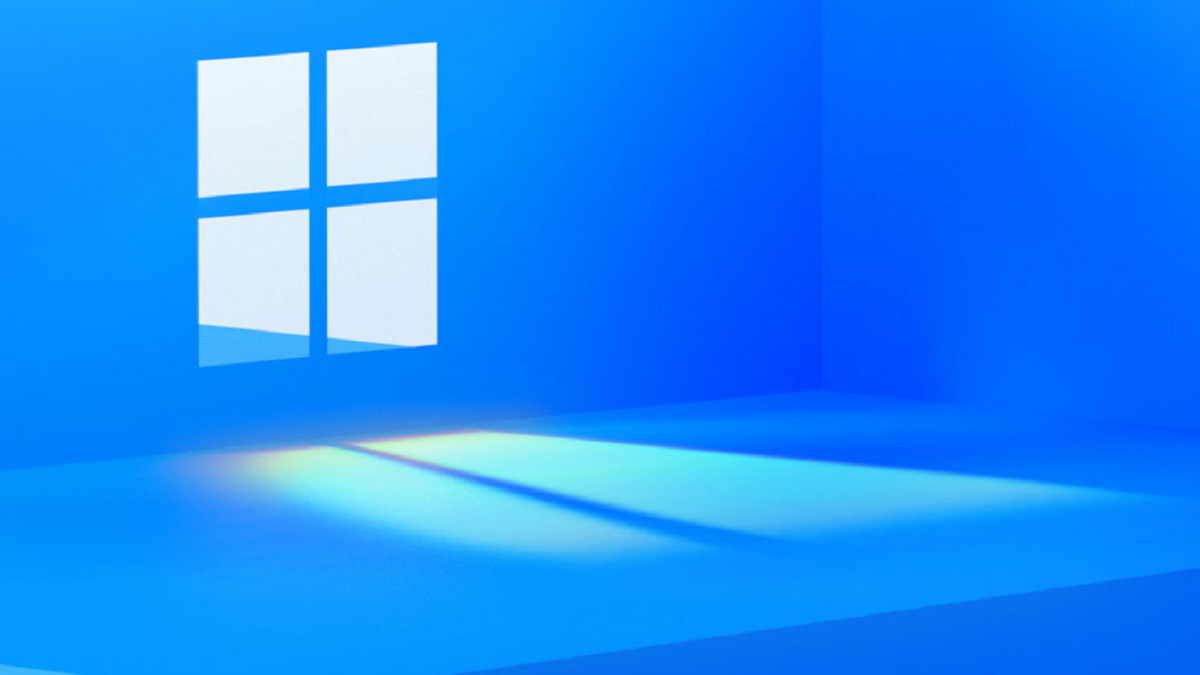Is it possible to opt out of AI features in Windows?
Registry edits get silly really fast, technically it’s possible just not very possible
Yes, by moving to linux.
But really you can’t.
You can disable copilot, but it’s complicated.
According to the article they are doing this to further discourage people from bypassing the hardware restrictions for installing Windows 11.
Don’t worry Microsoft. I am fully deterred from ever installing Windows 11 on any of my current or future computers already.
They’ve never not acted like that
There are plenty of unsupported CPUs that also support the AI requirements. Basically anything with an AMD Phenom or an Intel Core i5/7 first gen or newer supports these.
I have a 3rd gen i7 that isn’t “allowed” to run Windows 11.
Yes, it’s unsupported for other reasons. But if you bypass that requirement you won’t get these warnings about the AI requirements, assuming you have 16GB of RAM.
This whole overbearing patronizing shit is what pushed me away completely from Windows, that and the privacy concerns. It just became too much of a hassle & chore to actually use and constantly “fix” shit that I never asked for, to the point where even the bits of Linux tinkering aren’t as much of a problem in comparison. And thanks to Valve pretty much all games that I care for run without a hassle, or just very little tinkering. I haven’t really found my favored distro yet after hopping for a while, but it’s easy enough to switch anyway thanks to the Home folder containing pretty much the majority of what’s important for backups.
I’ve been trying to move to Linux for about 20 years, but gaming issues always sent me back to Windows.
I tried again after hearing about how proton and steamdeck have made it so much easier for most games and it’s true. Been exclusively on Linux on my gaming rig since about September. The only one I couldn’t get working was oddly a little simple indie game, it lagged badly while stuff like No Man’s Sky and Cyberpunk ran fine.
Microsoft is pushing this at a very bad time, because you CAN game on Linux now.
Yeah they’re following the IBM playbook of being the operating system that businesses run.
I just wish they would take a hint and release a paid version that has none of the ads, none of the bloatware, and none of the bullshit.
I feel confident that I could pay them just as much money as they would ever earn from mining my data and annoying the ever-loving fuck out of me and I would be happier about that.
But since they won’t do that fortunately there’s things like Atlas OS.
What about with NVIDIA hardware?
Yep they saw what we did with TPM UEFI changes
Linux is actually becoming easier to deal with than Windows in many cases. Microsoft has removed so many settings from the GUI that editing of the Registry has become required even for simple things. That’s much less user friendly IMO than backing up and editing a text .conf file.
lol they also (in 10 at least; I have no intention of touching 11) have like 20 years of incoherent and unconnected menus for different settings, and you just have to know where they are to get to them.
that image always bothers me not sure if its the weird chest situation or reaching one wing toward the cloaca while staring like that
That Tux version does have a bit of a Lenny face. ( ͡° ͜ʖ ͡°)
“Come take care of big pappa penguin, baby bird”
AI requirements…?
Weird Al Yankovich has recently published a manifesto about the optimal parameters of modern computers, which are informally referred to as “AI requirements”
Hue hue hue
- SSE 4.2
- POPCNT instruction specifically
- 16GB of RAM.
The first two are available on CPUs starting from AMD K10 (Phenom) and Intel’s Penryn and Nehalem architectures (Core 2 and original Core i5/i7).
Core 2, that takes me back.
Seriously? The old core i7 870 (not a typo) I have in my closet meets the requirements? Adding the watermark for CPUs older than that just seems mean-spirited.
I think there are also some ARM SoCs (now that Windows on ARM is a thing) that don’t meet the requirements, and there are too many systems out there with only 8GB of RAM.
😁 I have a MacBook pro with only 2g ram running the newest linux kernel, nouveau and Gnome on Wayland without swap, höhö. Well it runs mostly, it’s enough to stream from plex, tho.
You thought AI is going to help you?
No, you need to serve the AI, you need to sastify it’s requirement.
Real Answer:
from the article:
"The coding included hardware requirements for the CPU with the required instructions and a minimum of 16GB of memory. "
So they run locally? That surely means that no data is send to MS, right? Right?!
lol
PSA: Windows 10 IoT Enterprise LTSC doesn’t have any of this shit, won’t bother you and is supported until 2027
No it won’t. That’s such a stupid thing to write about. I don’t remember tomshardware being this clickbaity.
They’ve been pretty bad for awhile
I’ve just recently moved over to 11, because Windows 10 is going EOL in 2025. I needed to switch at some point anyways, so I might as well get it over with. I’m wondering if consumers can get access to LTSC releases of Windows though. Perhaps some form of enterprise edition, if LTSC editions aren’t publicly available.
The problem being of course that I can’t move from my precious Ableton Live and I really don’t want a MacBook. Before I installed 11 I tried it under wine, using Bazzite no less. Could’ve gone with a more music centric distribution, but everything points towards it not being stable for live usage - like at all, even with WineASIO. Couldn’t get the Push to register, and the buffer was hammered with just a little bit of processing. So, yeah…
My old Windows 10 install was Atlas OS, but now I’m trying Revision OS for 11. It must be doing something right for Windows Defender to quarantine one of it’s files. High praise from Caesar indeed. Revision is also a light modification, whereas Atlas OS pretty much nukes all the things - with varying effects and successes. In the end, they are community projects that obviously ruffle Microsoft’s feathers. So, yeah…
It’s a question of how to make a music workstation by choosing the right windows edition, or how to hack at the system until Microsoft limbs are gimped. Also, I don’t think I’ll need a printer spool. In any case, it’s a pain in my arse that I now also have to find a way to nuke Copilot. That will surely just wreck my buffer absolutely. “But you could use it for music creation”… what’s the fun in that?
In any case, please list your favourite key reseller sites. I might need to go shopping for something special, and Pro might not cut it.
If Linux really, really isn’t an option, you should consider switching to Mac. It’s still really similar to Linux (given it’s unix based), and doesn’t try to screw you over constantly like MS & Windows does.
I’m in the middle of divesting myself of all Microsoft products, and I will never, ever go back to Windows after the near-weekly horror show that Windows 11 has been. I’m still on Team Linux, but Mac is by far the next runner up.
You know, it probably is the time to ask myself: who is the bigger evil? Microsoft or Apple?
I’ve boycotted Apple products for so long that I can barely remember my white clamshell MacBook… my special little boy T_T I miss it.
But anyways, maybe if I can’t find a way to make Windows stop being a little bitch I might have to consider moving to a Mac :(
Unless Ableton ports live and max to Linux, in which case Fedora Atomic go brrrr.
Apple isn’t much better. Microsoft screws you on the software, and Apple screws you on the hardware (and a little on the software too).
Apple products are pretty much unrepairable at this point, and Apple seems to be doubling down when they can. From cryptographic parts pairing to banning manufacturers from selling chips to moving core components to the SOC (e.g. SSD controller), it’s usually cheaper to replace than repair, which is just bonkers when the part needed would only cost $20 but Apple will only fix it with a $1k+ board replacement.
And there’s little software things where they try to lock you in to their ecosystem.
That said, I’m not sure which is worse here. Pick the tradeoffs that work best for you. I’m just glad that Linux works well enough for my use case that I don’t need to choose between them.
That’s all definitely true, but when it comes to software, the shenanigans are all reserved for iPhone, iPad, and the like. MacOS is still really, really great IMO as it’s not as locked down as the mobile devices… it’s still very Linux-esque.
And all the devices are more repairable than people seem to think. Upgradeable? No. Repairable. Yes.
But yeah, I really wish more developers would make native Linux versions of their software available… then it’s an easy choice.
it’s still very Linux-esque
Hard disagree there. I use macOS at work and I’m constantly running into things that aren’t issues on Linux. For example:
- docker containers run in a VM on macOS and as processes on Linux - result is much better perf and fewer bugs on Linux (I have to restart docker almost daily due to bugs)
- two major package managers (homebrew and macports), yet neither is as nice as on Linux because they don’t manage system packages; I prefer macports, but both are a pain at release upgrade time, and I often need to “hide” outdated system stuff (e.g. Python and Ruby)
- can’t replace the stuff I care about - desktop environment, init system, etc
- drivers are only available if Apple says it’s okay - good luck with peripherals, which mostly just work on Linux
- hardware choice is limited - can use Apple hardware or try your luck with a hackintosh
It’s way better than Windows, but it’s really not a Linux-like experience at all. And that’s preferable for some, and not for others.
And all the devices are more repairable than people seem to think. Upgradeable? No. Repairable. Yes.
Source?
Look at Louis Rossmann’s videos (a MacBook repair person) about this topic and tell me again that they’re repairable. With a straight face.
They’re really not. Here’s how they seem to handle stuff:
- charge port goes bad? Board replacement.
- water damage? Board replacement.
- drive fails? No data recovery, and send it in for repairs.
- screen cracks? Entire top assembly replacement.
- display cable breaks? Entire top assembly replacement.
On pretty much any other, somewhat non-hostile product:
- charge port goes bad? Replace charge port daughter board, or solder on a new chip/port.
- water damage? Authorized repair person can attempt board level repair without a full replacement (much cheaper)
- drive fails? User serviceable (could send in busted drive for recovery if you want)
- screen cracks? Buy new glass and/or screen.
- display cable breaks? Buy a new one for like $15.
native Linux versions of their software available
Or even just test it in WINE. Getting it to work properly with WINE is probably easier than supporting native Linux versions. That’s certainly the case for games, and probably the case for desktop software.
They can even distribute Appimage or Flatpak if they don’t want to deal with variations between distros.
Could you run fossilized and sandboxed in a VM? I run Tiny10 for a couple Windows applications that can’t run on Wine, completely offline so that there’s no need for updates. The system continues to work exactly how I want it to with no Microsoft Surprises.
One of the applications is for tax filing, so I finish the taxes, clone the VM, put the copy online and file. After it gets confirmation, I copy the database back to the fossilized version and wipe the copy. Been doing it for years now.
This is probably the best approach. You could pass thru relative USB ports and even a GPU to do things on the Windows VM that you can’t do in Wine.
But how does that work? Isn’t windows rigged to discover if you’re running it in a VM to go “sowwy :( but this is an enterprise feature. Money please~!”











